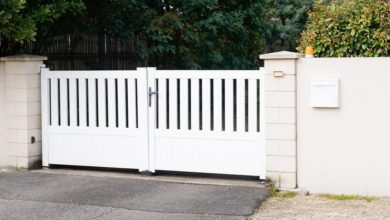Protecting Your Home Network: 10 Scenarios Where You Need To Be Cautious
KEY TAKEAWAYS
We live in a time when it is difficult to imagine a home without an Internet connection. However, Internet connection means not only many advantages and convenience, but concern for its security as well. Just as we take care of home security by locking our doors and closing windows, it is equally important to take care of Internet security. Otherwise, you may unknowingly be setting the stage for hackers to steal your sensitive personal information.
So, what should you pay attention to in order to strengthen the security of Wi-Fi at home? Where should you be cautious? Let us have a look!
1. Avoid Sharing Your Wireless Network Credentials
Even though you rely on people who you give your Wi-Fi credentials to, you will never know in whose hands this information will eventually appear. It means that you should set up another Wi-Fi network for guests which would let them use the Internet but at the same time would hide the information related to your primary wireless network. That is how you won’t inconvenience your guests, and will feel at peace about the security of your personal information.
2. Turn On Wi-Fi Encryption
Most WPA2 AND WPA3 wireless routers have the encryption feature. However, in order to use it, you have to turn it on and reconnect the devices you use to this network. After that Wi-Fi network encryption will be enabled and the data that is sent from your device to the wireless channel (and vice versa) will be coded.
3. Use a Virtual Private Network (VPN)
This is probably the most reliable way to protect your online connection. A VPN hides your IP address and encrypts your internet connection. In this way, it becomes inaccessible to third parties including hackers, your Internet service provider, websites’ administrators as well as the Government. What is more, playing online games with a VPN, reduces ping in most cases. So, a VPN not only protects your connection, but also provides additional benefits.
4. Make Sure That Your Antivirus Software Is Updated
Often, people tend to ignore the pop-ups of the antivirus program prompting them to update the software. This is a big mistake, as it leaves an open path for hackers to access your device information. After all, this is exactly why antivirus software programs are updated, in order to remove all the flaws that were not noticed by the programmers during their development or which became apparent only when they were put into use.
5. Turn Off Wi-Fi Network Every Time You Leave Home
This is probably the simplest advice. By turning off the Wi-Fi network every time you leave home, you can be sure that nothing will happen that should worry you during your absence. This should become as much a habit as turning off the lights when you leave or locking the outside door. Who knows, maybe it will be the best protection from the intruders when you walk out the door.
6. Disable Remote Access To Your Router
The idea to use the remote access feature which routers have is not good. That is because the ability to connect to it remotely means that not only you but others as well may take advantage of it. Thus ensure that the feature is disabled. By the way, if you will need this function in the future, you can always activate it just in a few clicks.
7. Practice Good Cybersecurity Hygiene
Even if you implement all the tips listed above, they may not be effective if you do not maintain good cybersecurity hygiene on your devices. Make sure they have an anti-virus program installed and working perfectly. Also, regularly check your devices for suspicious, insecure information. In case you find some, remove it immediately. In this way, you will ensure that your home network is safe to use.
8. Make Sure The Password You Use For The Router Is Strong
The passwords that people usually use for the router are very simple. Many of them think that these passwords are just a formality and do not have much value for home connection. However, it is a barrier that prevents anyone from accessing the network you are using. If the password you choose is weak, then the barrier is also weak. And on the contrary, the stronger the password, the greater the obstacle for the hackers. So if you care about security, strengthen your current password.
9. Do Not Locate Your Router Near External Doors Or Windows
Even though it might seem silly, it is recommended to place your router in the middle of your home. This is a method that does not require much effort, but can protect your device and the information on it from people who live nearby or just sit on the street on a bench. Although most of them do not have bad intentions, just one is enough to cause irreparable damage. Therefore, why should you take the risk?
10. Limit The Use Of The Administrator Account
The administrator’s account has many privileges. It allows you to make configurations on the system as well as overwrite files. That is why it should be used only for updates, maintenance and other, while for everyday activities you should use an account which does not have these privileges. This way, you will reduce the chances of hackers accessing your system, causing damage or stealing some of your personal information.

